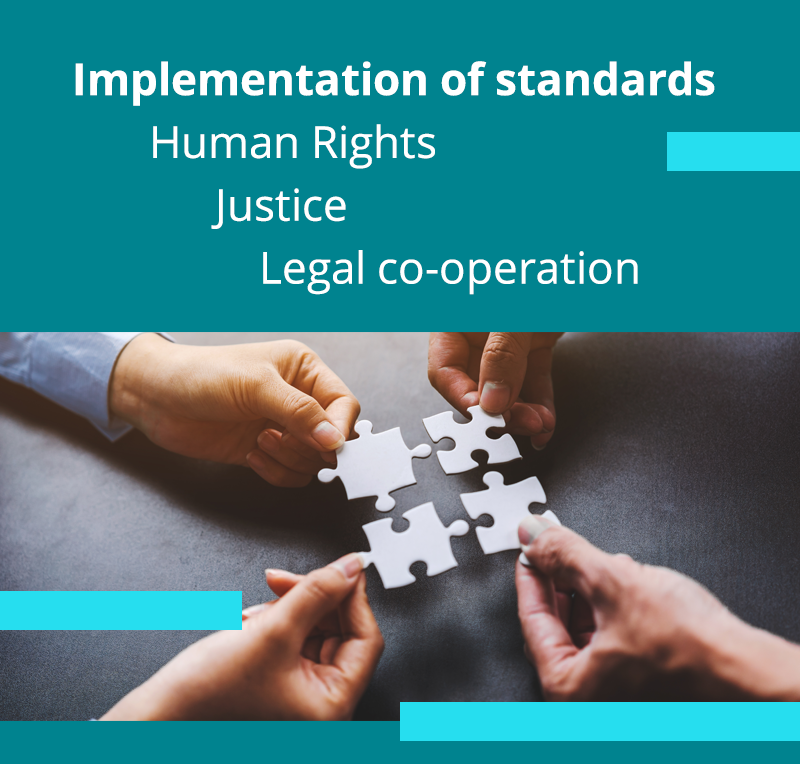Meeting of Co-ordinators of the execution of judgments of the European Court of Human Rights
24 June 2024 in Helsinki, Finland
At the 4th Council of Europe Summit in Reykjavik, the Heads of States and Governments recommitted to ensuring the full, effective, and prompt execution of the final judgments of the Court, and also affirmed the need for a co-operative and inclusive approach, based on dialogue, in the supervision process.
The national co-ordinations of execution of judgments of the European Court of Human Rights gathered in Helsinki to discuss ways in which the execution process can be improved and strengthened.
The event consisted of two autonomous but interrelated meetings. The morning session comprised of the First Annual Meeting between the National Co-ordinators and the Department for the execution of the judgments of the Court. This meeting was called for by the Reykjavik Declaration. This regular meeting should allow for an exchange of views with the Secretariat. The afternoon session focused on establishing the “Execution Co-ordinators Network” as a means to facilitate the exchange of expertise and experience among national co-ordinators of member States. Nicola Wenzel from Germany, Oana-Florentina Ezer from Romania and Marharyta Sokorenko from Ukraine were elected respectively as the Chair and the Vice-Chairs of the Network.
The full day event was organised under the aegis of the Lithuanian Presidency of the Committee of Ministers of the Council of Europe. In a recent decision, the Committee of Ministers welcomed the organisation of this event, the date of which has been chosen to precede the 100th meeting of the Steering Committee for Human Rights, on 25-28 June, in the same place.
The establishment of the Execution Co-ordinators Network (ExCN) was supported by the multilateral co-operation project “Support to efficient domestic capacity for the execution of ECtHR judgments (Phase 1)”, funded by the Human Rights Trust Fund.
Background Information:
National Co-ordinators of execution of ECtHR judgements are state officials from Council of Europe member states responsible for coordinating the execution of the ECtHR judgments in their respective countries.
In their decisions adopted on the very day of the 70th anniversary of the Convention, on 4 November 2020 in Athens, the ministers were clear about the continued relevance and importance of the Committee of Ministers’ Recommendation from 2008 “on efficient domestic capacity for rapid execution of the European Court’s judgments” – and they urged all member States to fully implement it.
And the Committee of Ministers' Guidelines “on the prevention and remedying of violations of the Convention”, adopted in September 2022, also stress the importance of strengthening domestic capacity and coordination structures for the execution of the Court’s judgments.
In parallel, the Parliamentary Assembly urged member states to take full advantage of this co-operation project - and to support the work aimed at establishing the Execution Co-ordinators Network.
This is the first time that national co-ordinators have come together to create a network dedicated to support each other in the process of execution of the ECtHR judgements by the exchange of knowledge, experience and best practices in this crucial field. The establishment of the Network is directly relevant to the strategic orientations given in the Reykjavik Declaration which called “for greater synergy between Council of Europe monitoring and advisory bodies, the Department for the Execution of Judgments and other relevant Council of Europe departments, as appropriate, to facilitate the exchange of good practice and expertise among member States”. But also “to assist member States in the implementation of judgments, which may involve, as appropriate, states facing the same or similar issues in implementation” .
The importance of “holding an annual meeting with national co-ordinators for the execution of judgments and the Department for the Execution of Judgments” was also highlighted by the Reykjavik Declaration. This is the first annual meeting taking place on the same date.






